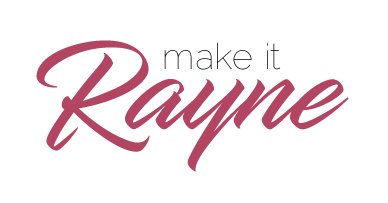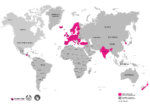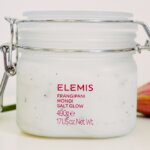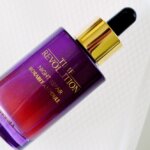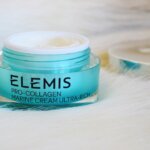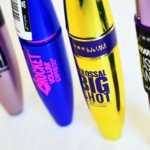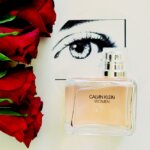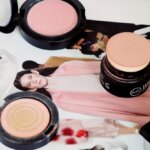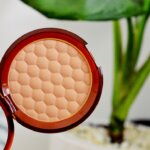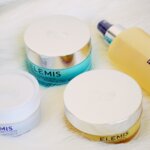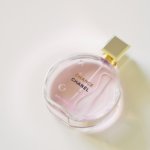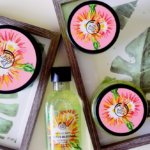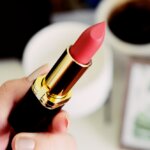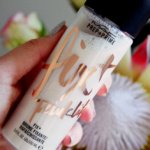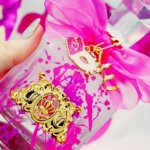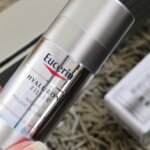Forever Against Animal Testing Q&A
Did you know that over 80% of countries have no laws around animal testing?
Animal Testing. The taboo reality of the cosmetic industry. Whether it is makeup, your shampoo and conditioner, or your face wipes, people are finally waking up to the reality of animal testing and what it really entails. There are companies similar to Focal Point Research who are trying their best to ensure that cosmetic companies follow the rules and regulations put in place, by providing them a Cosmetic Consultant so their products are safe for public consumption.
The Body Shop launched their Forever Against Animal Testing campaign and have to date garnered more than 3 MILLION signatures. They require 8 million signatures in order to approach the UN this year with their efforts.
1. Isn’t animal testing now banned? Why is it still an issue?
While there has been considerable progress following the EU ban, animal testing of cosmetic products and ingredients remains possible and is legally allowed in 80% of countries worldwide.
The only way to make sure that the practice is ended once and for all is to build on the groundwork carried out by Cruelty Free International and The Body Shop since 1989 to ensure that an enforceable global ban is put in place. Cue Forever Against Animal Testing.
Cruelty Free International estimates that more than 500,000 animals are used for testing every year.
That’s 1,390 animals a day. A global ban would bring to a close decades of animal suffering and would ensure that customers everywhere can shop with the confidence that no animals were harmed for their cosmetics. It would also create a level playing field for companies across the world and would mean that animal testing could not be moved from country to country.
2. Why are you still campaigning on Against Animal Testing, can’t you think of something more
important in the world, like human rights abuses or climate change?
The Body Shop and Cruelty Free International were the first major organisations to campaign against
animal testing in cosmetics. We first campaigned together back in 1989 (when Cruelty Free
International was known as the BUAV). Since that time, we’ve helped to ban animal testing in
cosmetics across the EU and influenced other bans in countries like New Zealand, India and Taiwan.
We welcome the fact that more and more countries have started bringing in legislation, but it can be
complex and confusing when the details of the rules are different in different places.
3. How do you know beauty consumers even care about this issue?
The Body Shop conducts regular market research with our customers and others globally. In 2016,we asked 6,000 of our customers world-wide what issues they wanted us to fight for and animal testing was the most popular.
We promised them we wouldn’t stop until we had finished the job of ending animal testingeverywhere and forever.
4. When you say animal testing in cosmetics, what do you mean?
Animal testing is done for both finished cosmetic products and ingredients, but predominantly ingredients. When we use the term “in cosmetics” we refer to both products and ingredients.
5. Why doesn’t The Body Shop fund alternatives to animal testing like Lush does?
The Body Shop is a campaigning brand and we have always campaigned to end animal testing for cosmetics. We have a history of campaigning that goes back to the 1980s. We were the first globalbeauty brand to campaign against animal testing in our industry.
There are already a number of much more effective and reliable non-animal tests that are sufficientfor cosmetic use now. The cosmetics industry in Europe – where animal testing is banned – has continued to grow and is worth more than EUR 70 billion, which is over one third of the globalmarket for cosmetics (more than the US and Japan combined). The EU ban has also spurred on innovation, R&D and the development of non-animal tests. One example of alternatives to animal testing is Episkin. Alternatives like this give us the ability to campaign pragmatically to ban animal testing.
6. Why is your new campaign calling for a UN convention; what will that do? /Will a UN
convention really create a global ban?
We believe the best and only way of achieving a harmonised global ban on animal testing for cosmetic products and ingredients is through an international convention that every country signsup to.
Together with Cruelty Free International we are asking the UN General Assembly to pass an international convention that will ban animal testing everywhere and forever. By creatinginternational action at this level we will also be demonstrating the fact that the public believes the time to end animal testing for cosmetics is long gone and that the practice should stop everywhere
and forever.
In summary, to finally place a global ban on the statute books, that ends animal testing in cosmeticseverywhere and forever, we are aiming for an enforceable international multilateral treaty. We will be working to secure the support of as many countries as possible to sign up to the treaty, startingthe process at the United Nations General Assembly by presenting a global petition and influencingmember countries to table and back a resolution. A harmonised global ban would bring to a closedecades of animal suffering, would create a level playing field for companies across the world andwould mean that testing could not be moved from country to country.
7. How will you achieve a UN convention?
Cruelty Free International and The Body Shop have partnered to deliver the largest and most ambitious campaign ever to seek a global ban on the use of animal testing in cosmetic products and ingredients. To do this, we need the help of our customers.
Achieving international rules begins with a UN member country taking a resolution to the UN General Assembly. It then requires support from all over the world to move forward.The more voices raised in support of the campaign from every corner of the world, the more likely we are to succeed. That is why we are asking everyone, everywhere to support our campaign and add their voice to the global call on the UN to ban animal testing for cosmetics. Sign our petition at thebodyshop.com/ban-animal- testing. Help make this the biggest ever petition to ban animal testing forever.
8. Does a UN convention automatically mean it will be illegal for any company in any country to
test on animals?
A convention constitutes international law and therefore is a legal document. However, in order for it to be fully effective it would need to be ratified by each member country to incorporate it into national law. It is therefore even more important that we demonstrate overwhelming global andpublic support for this ban to have all countries sign up to it. Enforcement measures can be writTen into the terms of the convention. In theory, this means that if a member country failed to address systematic breaches by a company they could have enforcement measures taken against them.
9. 500,000 animals a year sounds like a lot. How do you calculate that?
No one knows the true extent of cosmetics testing on animals: most countries that still permit the testing of cosmetics products and their ingredients on animals do not collect or monitor the numberof animals used and fewer still publish them. Based on the information that is available, Cruelty Free International estimates that the total number of animals used each year worldwide in cosmeticstesting to be approximately 500,000.
Around 150 new ingredients are introduced annually by cosmetics companies in Europe. It is likely that similar numbers proportionate to market size apply to the US, China, Brazil, Japan and India. This could total around 450 ingredients introduced across the world each year.
The testing of just one new ingredient for a deodorant, hair dye or sunscreen for example – using guidelines set by the Organisation for Economic Co-operation and Development (OECD) – could involve the death of around 1,400 animals.
10. How many countries still allow tests on animals?
80%* of the world’s countries would still allow the testing of cosmetic products and ingredients on animals. [* Most authorities recognise that there are 195 countries in the world – 39 countries have either testing and marketing bans or some form of testing ban.]
11. Which countries have banned animal testing?
All member states of the European Union and Norway have a ban on animal testing for cosmetics and on the sale of cosmetics tested on animals.
New Zealand, India, Israel, Norway, South Korea, Taiwan, Switzerland, Turkey, Guatemala and Vietnam have some form of legislation. Things are moving in Australia, Brazil, Argentina, Canada, Thailand, the USA, Russia and China.
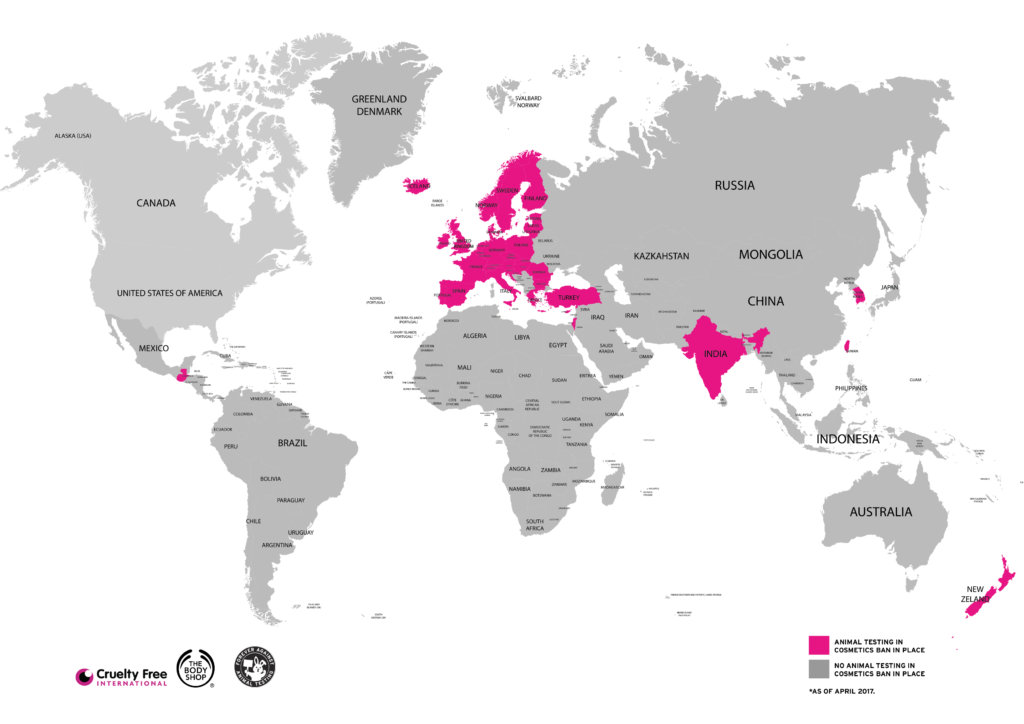
12. What tests are carried out on animals and what are they supposed to prove. Are they
effective?
Cosmetics ingredients and substances are dripped into animals’ eyes or smeared on to their skin; animals can also be injected, force-fed or made to inhale these substances. Animals may be injured in the process or suffer the damaging results of the chemicals. Typical effects include inflamed organs, irritated noses and stomach linings, lethargy, breathing problems, stained fur, excessive salivation, and even convulsions and death.
The animals are usually killed at the end of days, week sor even years. The information obtained from these cruel tests is then used in an attempt to demonstrate that a product is safe for human use and in many cases is only 40-60% effective.
13. What alternatives exist and how effective are they?
Much progress has been made in establishing alternative non-animal testing methods, and these
progressive alternatives are often cheaper, faster and better at predicting human reactions. There
are also thousands of already-approved ingredients and existing products available.
Humane alternatives to animal tests can use simple organisms like bacteria or human tissues and
cells as well as sophisticated computer models:
- Human Tissue – Almost every type of human and animal cell can now be grown in the laboratory. Scientists
have even managed to coax cells to grow into 3D structures, such as miniature human
organs, which can provide a more realistic way to test. - Human cells donated from volunteers can provide a more relevant way of studying human
biology than animal testing. For example, tests using reconstituted human skin and other
tissues have been developed and are used to replace the cruel rabbit eye and skin irritation
tests. Companies like EpiSkin now produce these tests in easy to use kits for companies to
test their cosmetics. EpiSkin was founded by L’Oreal and is now considered a world leader in
skin technology. - Computer Models – With the growing sophistication of computers, the ability to replicate aspects of the human
body is ever more possible. Computer models can be used to predict the safety of new
cosmetic substances based on knowledge of existing substances. - Recent advances in toxicological science, bioinformatics and systems biology have provided
the means to transform toxicology into a predictive science that takes a multi-disciplinary
approach, integrating in vitro methods with computational based methodologies (in silico).
14. Why is harmonised legislation important?
While there has been considerable progress following the EU ban, animal testing for cosmetics remains possible and is legally allowed in 80% of countries worldwide. Cruelty Free International estimates that more than 500,000 animals are used for testing every year. That’s 1,390 animals a day. The only way to make sure that the practice is ended once and for all is to build on the groundwork carried out by Cruelty Free International and The Body Shop since the 1980s to ensure that an enforceable harmonised global ban is put in place.
A harmonised global ban would bring to a close decades of animal suffering and would ensure that customers everywhere can shop with the confidence that no animals were harmed for their cosmetics. It would also create a level playing field for companies across the world and would mean that testing could not be moved from country to country.
15. You say Animal Testing legislation is currently complex and confusing – why?
Rules on animal testing in cosmetic products and ingredients are a confusing patchwork. Legislation differs around the world, with some countries banning cosmetics that have been animal-tested after a certain date (e.g. the EU), others outlawing animal testing for cosmetics products and ingredients (e.g. New Zealand), others ruling out animal testing for some, but not all, cosmetics products and ingredients (e.g. South Korea, Taiwan), and some banning only certain tests (e.g. Vietnam).
More and more countries require non-animal safety tests and many have taken steps to prohibit cosmetics testing on animals, but more work needs to be done to harmonise the rules. Because most countries around the world would still allow animal testing for cosmetics, a global ban is theonly way to eliminate animal suffering and to create an international level playing field.
Harmonising safety testing requirements globally would allow companies to avoid unnecessary bureaucracy and test duplication when accessing international markets to fill the consumer demandfor safe and humane cosmetics.
16. X product has a Leaping Bunny logo but Y product doesn’t. Does this mean only some of the
Body Shop products are certified cruelty-free?
The Leaping Bunny logo is being added to all of our packaging in a steady process. Some products may not have the logo on the packaging because there is not enough space, but it will contain the words ‘Against Animal Testing’ instead. You can be rest assured that it’s still certified by Cruelty Free International.
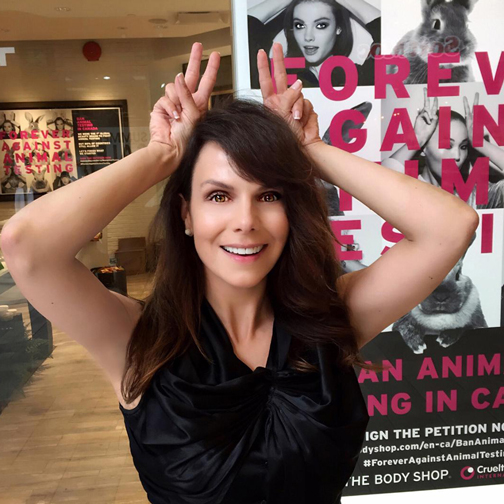
L’Oréal and China
17. Does L’Oréal support your campaign?
L’Oréal is fully supportive of our campaign. Both L’Oréal and The Body Shop ultimately believe in a world where there is no animal testing in cosmetics. While The Body Shop campaigns for this vision, L’Oréal has invested millions of euros in research and alternatives to animal testing, including Episkin.
Episkin, developed by L’Oreal and at the forefront of innovative skin technology, gives us the ability to campaign pragmatically to ban animal testing.
18. Is L’Oréal selling The Body Shop because they test on animals?
Not at all. L’Oréal announced in February 2017 it was exploring options for The Body Shop’s ownership to give The Body Shop the best opportunities to continue developing. No decision has been taken so far.
19. How can you campaign on Against Animal Testing when your profits fund your parent
company testing on animals in China?
Our profits go into developing many different areas of our business, including our campaigns against
animal testing. Every year, The Body Shop invests in our independent accreditation and auditing by
Cruelty Free International, raising awareness of the issue of animal testing in cosmetics, campaigning
to ban it and informing our customers about our progressive approach.
We are currently owned by L’Oréal, which clearly states that since 2013, it completely stopped
testing ingredients on animals.
[If asked: The health authorities require some tests on animals for certain products or ingredients.
For over 10 years, L’Oreal has worked alongside the Chinese authorities and scientists to have
alternative testing methods recognised and to permit the cosmetic regulation to evolve towards a
total and definite elimination of animal testing.
20. The Chinese government still requires animal testing for some cosmetics; why aren’t you
lobbying them directly?
To achieve change, our campaign will work positively with every country. We want to see everyone everywhere making the difference that will mean animal testing for cosmetics can no longer take place.
Harmonising the rules and achieving international acceptance for non-animal alternatives will help countries that have not yet implemented bans to take the next step. By achieving a global ban, there will be no more loopholes or confusing regulations between countries, and no animals will be tested on anywhere in the world ever again.
21. Are you campaigning as a smokescreen so that The Body Shop can trade in China?
No. The Body Shop has always been a campaigning brand, and we have campaigned against animal testing for over 25 years.
22. Isn’t L’Oréal owned by Nestle, which has been critised in the past for unethical practices?
Nestlé is one of many shareholders in L’Oréal. L’Oréal as a company is committed to ethics andsustainability. For more information, please speak to L’Oréal.
23. L’Oréal says it doesn’t test on animals, so why isn’t it certified cruelty-free?
L’Oréal complies with the regulations in all the markets in which it sells products. It clearly states that since 2013, it completely stopped testing ingredients on animals.
Leaping Bunny certification requires a company to commit to not conducting or commissioning animal testing for cosmetics or ingredients for any market regardless of regulatory pressure.
24. Do you believe that L’Oréal doesn’t test on animals?
L’Oréal has no wish to test cosmetic products or ingredients on animals and has safety dossiers on all their products that do not rely on animal test data.
REACh
25. Doesn’t the European REACh legislation mean that you are now using ingredients that have
been tested on animals?
REACh legislation applies to all chemicals used in Europe. It is not specific to cosmetic ingredients.
The aim of REACh is to improve the protection for human health and the environment from risks
from chemicals and to ensure all producers of chemicals provide evidence of this. Unfortunately
some of this evidence that all chemicals in Europe are safe for both users and the environment will
be generated through animal tests and therefore, if those chemicals are also used in cosmetics then
sadly at some stage, they will have been tested on animals.
The Body Shop is Leaping Bunny certified. The Leaping Bunny certification is the only internationally-
recognised scheme that enables consumers to easily identify and purchase cosmetic and toiletry
products that have not been tested on animals. It is the only scheme that requires each company to
be open to an independent audit throughout the supply chain, to ensure that they adhere to their
animal testing policy and the Leaping Bunny strict criteria.
Under the Leaping Bunny programme, companies cannot use ingredients that have been tested for
any purpose (including REACh) if the testing was after the company’s fixed cut-off date and the
ingredient is used predominantly in cosmetics.
Cruelty Free International is the leading organisation working to stop animal testing under REACh. Its
experts were involved in the negotiations during the creation of REACh and wee able to make sure
that companies share their testing data, avoid duplication of animal tests and that animal testing
should be a ‘ast resort’. It continues to monitor and challenge the need for new animal tests under
REACh and pushes for greater efforts to promote alternative methods. Cruelty Free International
estimates that its interventions have already saved millions of animals. For more information visit
https://www.crueltyfreeinternational.org/chemicaltesting.
26. If you want to see an end to Animal Testing, why aren’t you campaigning to end REACh?
The REACh legislation has a much wider remit and it affects every industry using chemicals in
Europe. The vision of REACh is to make the use of chemicals safer for those handling, using and
consuming them, as well as providing protection for the environment we live in.
The Body Shop supported the Cruelty Free International challenge to the compatibility of REACh and
the EU cosmetic marketing ban. Although a complete ban on animal testing for the purposes of
REACh has not been achieved, The Body Shop is pleased that a recent decision made by the
European Court of Justice ensures that no animal testing data can be used to support the safety or
efficacy of ingredients used in cosmetics.
27. Will the UN convention end animal testing under REACh?
We are campaigning for a UN convention which will drive animal testing out of the cosmetics industry everywhere and forever. This is not the same as ending animal testing under REACh, which is the European Union’s chemicals legislation. REACh applies to all chemicals whereas the UNconvention will apply specifically to cosmetics products and ingredients; however whilst REACh islimited to Europe, the UN convention will be global.
We hope the UN convention will have a positive influence on other legislation that requires animal testing, such as REACh and chemicals regulations in other parts of the world. The Body Shop will continue to adhere to Leaping Bunny certification requirements and will not accept cosmeticingredients that have been tested for REACh or any other purpose after our fixed cut off date.
And there you have it. The most important and most asked questions when it comes to The Body Shop.
But the most important question of all is.. have YOU signed the petition? Please PLEASE help the #FAAT campaign by signing our name. You can be a part of one of the most iconic movements in history.
Don’t forget to leave me a comment letting me know you have signed!
Rayne XX
